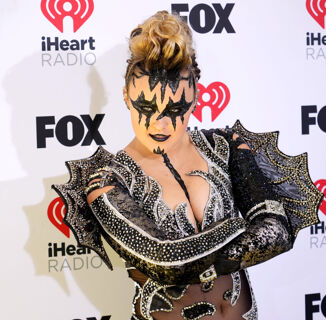Twitter’s co-founder Jack Dorsey announced today that he is stepping down as CEO. He will let Chief Technology Officer Parag Agrawal take over day-to-day executive duties, while he remains on Twitter’s Board for the next few months.
“I’ve decided to leave Twitter because I believe the company is ready to move on from its founders. My trust in Parag as Twitter’s CEO is deep. His work over the past 10 years has been transformational. I’m deeply grateful for his skill, heart, and soul. It’s his time to lead,” Dorsey said in a statement confirming the news first reported by CNBC.
Dorsey then sent an email to all of Twitter’s staff, which he subsequently published online. Besides explaining that “this was my decision and I own it,” and that he wants Twitter to grow independently of him, the 45 year-old did not say what led him to make the decision now.
not sure anyone has heard but,
I resigned from Twitter pic.twitter.com/G5tUkSSxkl
— jack⚡️ (@jack) November 29, 2021
Dorsey continues to serve as CEO of Square, a separate financial company responsible for Cash App and Square payment processing devices, which he founded in 2010 after initially being ousted from Twitter.
Dorsey was the final co-founder of Twitter still involved in the company, and had served as CEO since 2015. I’m sure when he approached investors about creating a text message-based communications platform in the early 2000s that would be a shortform Livejournal-meets-AIM, he likely did not assume he would create one of the most important products in history. That’s exactly what happened.
Still, it’s also very likely that he did not envision creating a digital space where hatred and disinformation reign so supreme that they allowed the sitting President of the United States to proudly violate the space’s own guidance for three years and 351 days, but that’s exactly what happened.
Twitter has certainly made important changes to the world, in large part due to Dorsey’s leadership, but it has also become an uncontrolled catalyst for the inequities of that world, too. Even the most extremist and fringe figures and organizations in the world have, or would like to, maintain a space on the social network. Dorsey’s role in enabling that should not be minimized.
In comparison to Facebook and its creator Mark Zuckerberg, Twitter and Dorsey may seem much more ethical and well-intentioned, but that’s a very ridiculously low standard to hold any digital company to. So while the blue bird app is slightly more accepting of the LGBTQ community, it has been ridiculously harmful to us as well. While most white supremacists and religious extremists have to habituate off site or in secret, TERFs and anti-gay extremists largely instill their doctrine free of consequences on Twitter.
That’s not to mention the many features that suppress LGBTQ-affirming content or pro-LGBTQ efforts, while much of society deteriorates into instability and decay in part due to issues or actions allowed to ferment on Twitter. Dorsey has not only actively profited from all of that, but he has supported it in his political donations to anti-LGBTQ advocates such as Tulsi Gabbard, or with implicit endorsement of leading bigots, like when he appeared on Joe Rogan’s podcast.
So although queer people generally have more access and opportunity through Twitter than most of the social media landscape, that surely doesn’t come with the safety or equity that even other communities can foster and protect online.
As with much of society, the kind of massive problems that Twitter causes and/or supports aren’t going to be solved through one person’s exit. It’s not immediately clear how much is going to change under Agrawal’s leadership, if anything. But it is possible to begin changing course and reducing harm in several ways that Dorsey wasn’t willing to do, similar to what improvements (albeit miniscule ones) we’ve seen Apple create since Tim Cook took over as CEO for the late Steve Jobs, Dorsey’s idol.
Like Jobs, a large part of Dorsey’s story arises from the fact that he was removed from the company when Twitter first took off, and it took years of work and dedication to not only regain his reputation and success, but prove his influence by returning to the place where it all had been taken from him. Much like Jobs, that will become inspirational lore for likely decades to come.
But also like Jobs, the realities of what Dorsey did — or failed to do — that led to reprehensible harm to the rest of us also needs to be remembered.
There is a chance to remedy them, but with several investors in Twitter already hoping to turn more profits from the already billion-dollar company, will ethics reign over wealth? History doesn’t have the most encouraging record of such prior debates.
As WIRED wrote as its headline following the news, “Jack Dorsey Was the Soul of Twitter.” Will there be any soul left in his absence?
For queer people especially, let’s hope — and demand — so.
Don't forget to share:
Help make sure LGBTQ+ stories are being told...
We can't rely on mainstream media to tell our stories. That's why we don't lock our articles behind a paywall. Will you support our mission with a contribution today?
Cancel anytime · Proudly LGBTQ+ owned and operated
Read More in The Internet
The Latest on INTO
Subscribe to get a twice-weekly dose of queer news, updates, and insights from the INTO team.
in Your Inbox













